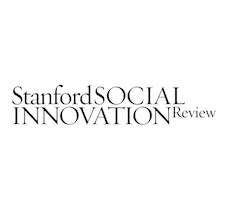“I felt trapped, and I was angry a lot of the time. I worked from early morning until midnight, with no outlets for my emotional and intellectual needs other than my employees and the local women we served. Over time, I felt the need for more nourishing interactions, and I also felt guilty about wanting something more. It was very unhealthy.”—Bedriye Hülya, founder of b-fit.
We’ve heard some version of this sentiment in many of our conversations with social entrepreneurs. “I was riding on adrenaline for the first five years,” said Mike Sani, founder of the UK-based civic engagement enterprise Bite the Ballot. “People only see the glamorous parts, but no one knows the depths of the lows. I blamed myself for not achieving our mission faster. I suffered from imposter syndrome. None of my family members understood what I did. I felt incredibly lonely.”
This is an excerpt from the article Self-Inquiry for Social Change Leaders by Katherine Milligan and Jeffrey C. Walker.
This article is a part of a special series on the connection between inner well-being and social change, in partnership with The Wellbeing Project, Stanford Social Innovation Review, Schwab Foundation at the World Economic Forum, and Skoll Foundation.




